Petticoat Larceny

Brief Synopsis
Cast & Crew
Ben Holmes
Ruth Warrick
Joan Carroll
Walter Reed
Wally Brown
Tom Kennedy
Film Details
Technical Specs

Synopsis
Joan Mitchell, the child star of the Kippy Korn Flakes radio program "Underworld Angel," is dissatisfied with the quality of her scripts. When Joan complains to J. C. Crandall, the head of the company, that her gangster dialogue is not realistic, Crandall promises to speak to the show's writers. Bill Morgan, Kippy Korn's press agent and the fiancé of Joan's guardian, Aunt Pat, suggests staging Joan's disappearance as a publicity stunt to stimulate listener interest, but Crandall forbids any use of sensationalism. That night, after Bill presents Joan with another unrealistic script, she decides to write her own, and is advised by her butler, Higgins, to study her characters thoroughly. Joan's opportunity to research the underworld presents itself when Pinky, a safecracker, breaks into the Mitchell house. Joan pretends to be a juvenile cracksman and helps him to open the safe. Thinking that Joan is a homeless waif, Pinky takes her to the apartment he shares with fellow gang members Stogey and Jitters. After Joan makes up a fictitious story that her "father," Joe Foster, is in jail, the three christen her "Small Change" and welcome her into their gang. The next morning, Pat discovers that Joan is missing and assumes that she has been kidnapped. Although news of her abduction is splashed across the headlines, Pinky, Stogey and Jitters are unaware that their "Small Change" is the missing radio star. When Crandall accuses Bill of staging the kidnapping as a publicity stunt, the police become suspicious. After Joan phones home and the police overhear Bill talking to her, Lieutenant Hackett arrests him for questioning, but he escapes. Meanwhile, Joan convinces her friends to burglarize a house that night, but when the alarm sounds and brings the police, the four narrowly escape. Later, Pinky convinces his friends that they should reform for the sake of "Small Change." Deciding to reunite her with her jailbird father, they locate a man named Foster in a mid-town jail. While Jitters and Stogey go to post Foster's bail, Pinky takes Joan to buy a new dress. Joan is standing on the sidewalk in front of the store when Bill sees her and tries to take her home with him, but Pinky then slugs Bill and flees with Joan. The commotion brings the police, and Bill is arrested once again. In order to win his release and locate Joan, Bill admits to concocting Joan's kidnapping. Hackett then frees Bill, giving him two hours to return with Joan. Meanwhile, at the mid-town police station, Stogey and Jitters post Foster's bail, and when they tell him about his "daughter," he plays along with the story and returns to the apartment with them. There, Joan tells Foster who she really is and proposes that she leave with him to spare her friends' feelings. Realizing that Joan is the missing radio star, Foster promises to take her home, but after they leave the apartment, he kidnaps her and takes her prisoner aboard the S. S. Lady Luck . Bill, meanwhile, is searching the neighborhood for Joan and when he questions Louie, the proprietor of a pool hall who knows the gang, Louie realizes that Foster is not Joan's father and that she is in trouble. Louie then phones Pinky and tells him that Foster is in league with the owner of the ship called the Lady Luck . Pinky and the gang join Bill at the pool hall, and they all drive to the ship. After a battle with Foster and his gang, Joan and her friends subdue the criminals, and the police, drawn by the gunshots, arrive and arrest the gang. When the Judge suspends the sentences of Pinky, Stogey and Jitters and places them in Joan's custody, the three become supporting players in her new radio show.

Director
Ben Holmes
Cast
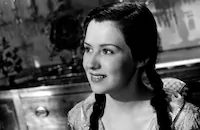
Ruth Warrick

Joan Carroll

Walter Reed

Wally Brown
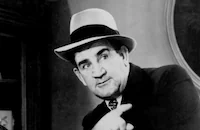
Tom Kennedy
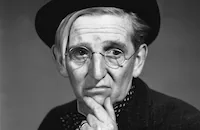
Jimmy Conlin

Vince Barnett
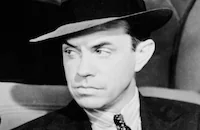
Paul Guilfoyle
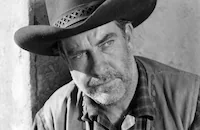
Grant Withers
Earl Dewey
Charles Coleman
Cliff Clark
Clarence Straight
Joel Friedkin
Jack Rice
Alfred Hall
James Carlisle
Hal Melone
Eddie Cobb
Dick Baron
Lew Harvey

Lloyd Ingraham
Alan Bridge
Bud Geary
Al Hill
William Gould
Dick Rush
Eddie Borden

Gertrude Astor
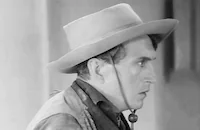
Paul Fix
Patti Brill

Mary Halsey
Ann Summers
Bruce Edwards
Russell Hoyt
Crew
C. Bakaleinikoff
Albert S. D'agostino
William Dorfman
Al Fields
Bert Gilroy
John C. Grubb
Walter E. Keller
Harry Marker
Stuart Palmer
Frank Redman
Renie
Darrell Silvera
Jack Townley
Roy Webb

Film Details
Technical Specs

Articles
Ruth Warrick (1915-2005) - Ruth Warrick, (1915-2005)
She was born on June 29, 1915 in St. Joseph, Missouri. After attaining a degree in theatre from the University of Kansas City, she left for New York, where in 1938, she joined the Mercury Theater troupe, headed by a young artist on the rise by the name of Orson Welles. When Welles prepared to film Citizen Kane (1941) he took several players from his Mercury Theater (Joseph Cotten, Everett Sloan, Agnes Moorehead) and of course, Ruth Warrick. She made her film debut in Welles' cinematic epic as Emily Norton Kane. Indeed, to many film buffs, Warrick's icy charms are indispensable to the celebrated montage sequence opposite Welles at the breakfast table; particularly when he broaches the subject of her husband's infidelity:
Emily Kane: Charles, people will think...
Charles Kane: What I tell them to think!
Warrick received fine reviews for her performance, and she had good roles in her next two films The Corsican Brothers (1941), with Douglas Fairbanks Jr., and Journey Into Fear (1942), opposite Joseph Cotton. Sadly, Hollywood, not knowing what to do with a well-trained, mature actress like Warrick, began to cast her into routine, forgettable fare: Mr. Winkle Goes to War (1944), China Sky (1945), and Swell Guy (1946). Disney's Song of the South (1947), was a box-office hit, and was her best film in a while, but overall, the material she received over the next few years, simply wasn't worthy of her talents.
Things turned around for her in the mid-50s, when Warrick discovered the medium of television. She had regular roles on The Guiding Light (1953-54), As the World Turns (1956-60), Father of the Bride (1960-61), and was unforgettable as the sinister housekeeper, Hannah Cord, in Peyton Place (1965-67). Yet it was her 35-year run in the role of Phoebe Wallingford in All My Children (1970-2005), that Warrick achieved her greatest triumph. As the rich, intrusive matriarch of the fictitious, affluent town known as Pine Valley, Warrick found a role that could be at once gloriously hammy and quietly conniving - qualities that highlighted her renown versatility as an actress. To honor her contribution to television, Warrick received a lifetime achievement award from the Daytime Emmys last December. She is survived by three children, a grandson, and six great-grandchildren.
by Michael T. Toole

Ruth Warrick (1915-2005) - Ruth Warrick, (1915-2005)
Quotes
Trivia
Notes
Although a Hollywood Reporter production chart places James Dunn in the cast, he does not appear in the final film. A Hollywood Reporter news item adds Dorothy Kelly to the cast, but her appearance in the final film has not been confirmed.














